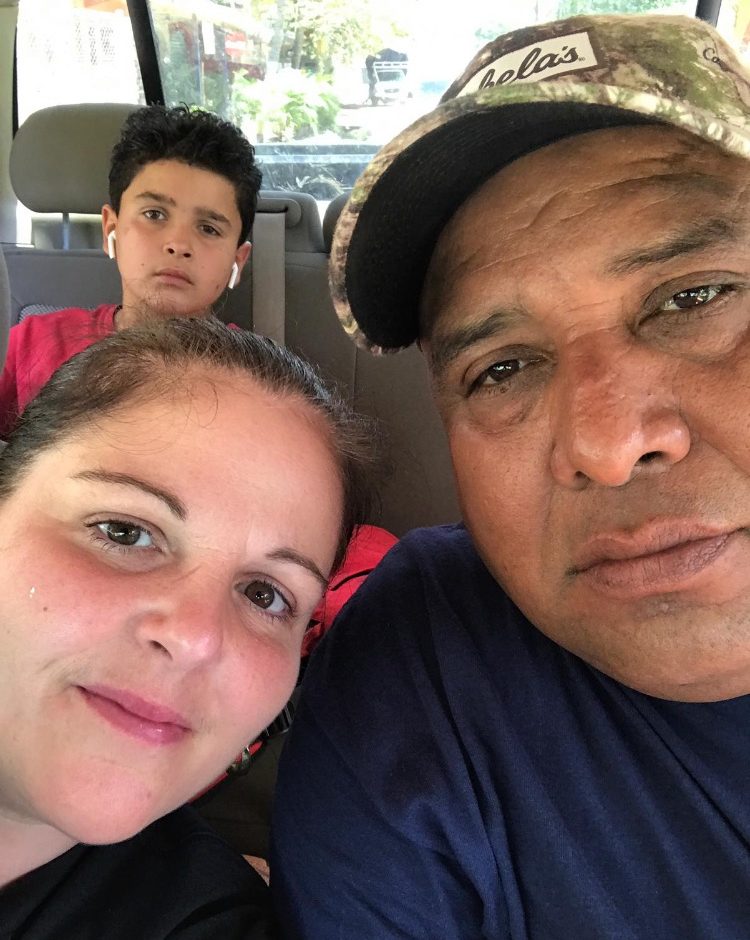Created in collaboration with National Immigration Project of the National Lawyers Guild and Ohio Immigrant Alliance
Deportation—banishment from home, family, and established lives—is a major event that profoundly impacts the lives of people who are deported, as well as their families and communities. Many people harmed by deportation are U.S. citizens.
The Biden-Harris administration can change internal policies to reunite families in the U.S., even without an act of Congress.
Maria Paz Perez’s husband was deported in 2013, before the Obama-Biden administration changed its policies. She wrote: “After Brigido’s deportation, our teenage daughter became depressed, turned to self-harm, and was hospitalized. We lost our business and our home. Our son, only three years old at the time of his father’s deportation, developed severe anxiety and started wetting the bed. Xavier doesn’t understand why his father isn’t allowed to be in the country where the rest of us were born.”
The Biden-Harris administration can correct these wrongs in the following ways.
Rewrite Existing Return Policies
ICE currently has a directive on “Facilitating Return for Certain Lawfully Removed Aliens.” This directive and additional guidance could be revised to allow people to come home whose final orders of removal are or could be vacated, based on their reinstated LPR or other status, or through use of humanitarian parole. DHS could initiate a regulatory process to make these changes permanent.
Eusebio, whose wife Esperanza was deported in 2017, said: “I thought I was OK to handle my daughters. But now I find out they need mom over here. She’s the one that makes us a family together.”
End the Departure Bars and Deportations During Legal Proceedings
DHS could stop applying, and begin the process of repealing, unfair departure bars to reopening and reconsideration of deportation orders. DHS could also refrain from deporting people with a pending motion for sua sponte reopening of removal proceedings, and those who have pending legal proceedings before the agency or in federal court.
After her husband Pedro’s deportation, Seleste Wisniewski, a U.S. citizen whose eldest son has severe cerebral palsy, said: “Only thing I know is me, my kids, we sit in disbelief, struggling. Unnecessary suffering of the separation. Unnecessary worry. Is the country a safer place?”
Motions to Reopen Immigration Cases
DHS and DOJ could allow reopening of removal orders predicated on anti-asylum policies, which flourished under the Trump administration despite international and moral obligations. Asylum seekers could be allowed to reopen their cases and return to the United States to seek immigration relief they already qualify for, such as adjustment of status based on marriage to a U.S. citizen.
Alfredo Ramos was murdered after being deported in 2018. Said his ex-wife, Susan Brown: “He never wanted to leave, never wanted to be separated from his children.” Alfredo’s children watched his funeral on video.
Redress for Victims of Retaliation
People deported due to illegal enforcement actions could be granted parole to return to the United States and pursue immigration relief they qualify for under the law, including U and T visas, non-LPR cancellation, and Deferred Action.
Claudio Rojas, a father and grandfather, was deported after appearing in a film criticizing ICE detention. He said: “I am totally sure this is a form of retribution…. The biggest dream they are taking from me now is to be with my grandchildren.” Claudio’s case is pending before the 11th Circuit Court of Appeals.
Office of Removal Order Review
DHS could create an Office of Removal Order Review that allows people to seek review of their cases. It would allow people to be considered for forbearance from removal, discretionary waivers, and return to the United States under parole or other status.
Thalia, whose mom was deported, said: “In our house, I feel that vibe where it’s cold, it’s just dark. It feels like a place but not a home.” After her sister attempted suicide, Thalia’s mom, Esperanza, said: “I wanted to fly to them, but I couldn’t do anything.”
From Senegal, Issa Sao reflects on the time he spent in immigration jail and the years after his deportation. A father of two U.S. citizens, Sao is also married to an American. He was born in Mauritania but cannot live there because of threats to his safety. “I went through a lot, man, between 2018 until now, but I’ve got faith. I just hope everything’s going to change.”

